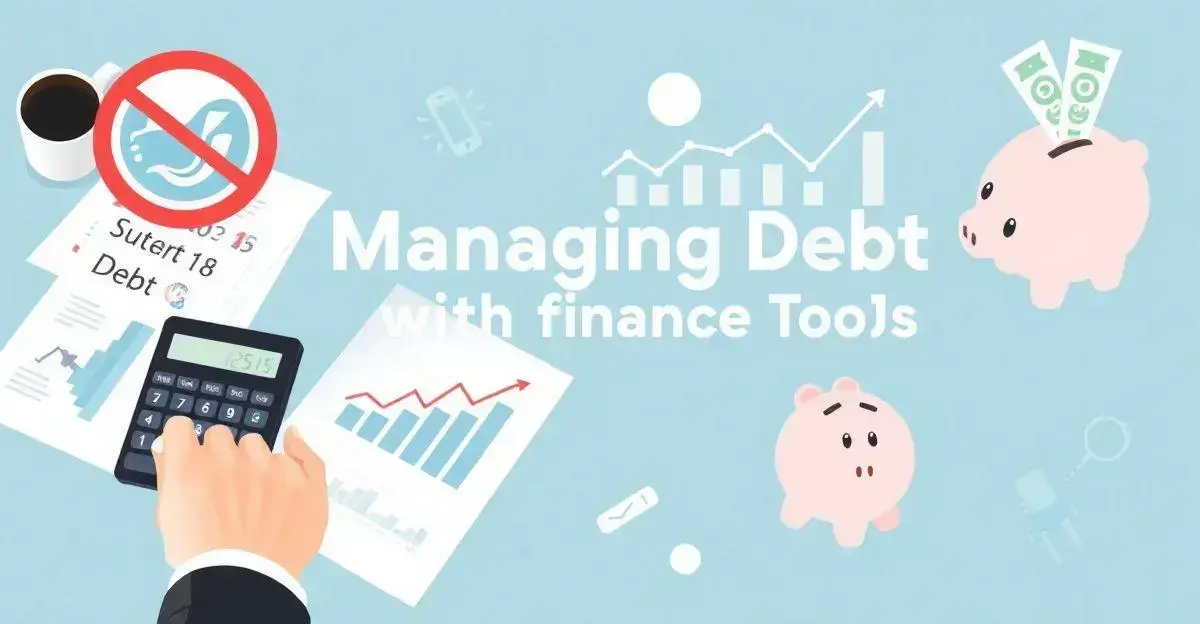Tools for personal finance have become essential for managing budgets, tracking expenses, and building wealth.
In today’s fast-paced world, a smart approach to managing your finances is crucial.
Introduction to Personal Finance Tools
Understanding personal finance tools is essential for anyone looking to take control of their finances. These tools can help you manage your money more effectively, track your spending, and achieve your financial goals. Various types of tools are available, each designed to address different aspects of personal finance.
Some popular tools include budgeting apps, which assist in allocating your income towards expenses and savings. These apps allow users to track their expenses and set financial goals, ensuring you stay on top of your budgets. Additionally, savings calculators can help you understand how much you need to save to reach specific financial targets over time.
Investing tools are another important category, providing insights and analysis for those looking to grow their wealth. They allow individuals to research stocks and other investment opportunities while assessing their risk tolerance. Furthermore, debt management tools can assist in creating strategies to pay off loans and credit cards more efficiently.
Always remember to evaluate each tool’s features and determine which aligns best with your needs. With the right tools in hand, managing your personal finances can become a much simpler and more rewarding task.
Benefits of Using Finance Tools

Using finance tools can significantly enhance your ability to manage money and make informed decisions. These tools offer numerous benefits that can help simplify your financial life.
Firstly, they provide clarity regarding your spending habits by tracking your expenses automatically.
Many finance tools come with features that allow users to set budgets and monitor their goals in real-time. This functionality keeps you accountable and helps you stick to your financial plans. Additionally, finance tools can offer insights into areas where you may be overspending, allowing you to adjust your habits accordingly.
Another major benefit is the ability to plan for the future. Many apps include financial planning features that can help users project their savings and investments over time. This foresight can assist in preparing for significant expenses like buying a home or planning for retirement.
Moreover, finance tools often include useful educational resources, helping users improve their financial literacy. By learning to use these tools effectively, users can make better financial decisions that positively impact their lives.
Popular Personal Finance Apps
Several popular personal finance apps can help you manage your money effectively. These apps simplify budgeting, expense tracking, and overall financial management. One of the most widely used apps is Mint, which allows users to track their spending and create budgets effortlessly.
Another excellent option is You Need a Budget (YNAB). It focuses on teaching users how to manage their finances in real-time, helping you allocate every dollar to specific expenses and savings. This app is great for those who want to take a proactive approach to their finances.
Personal Capital is also popular, especially for those interested in investing. It provides tools to help manage both everyday expenses and long-term investments. Users can track their portfolio performance and plan for retirement while managing their current financial situation.
Apps like GoodBudget offer a unique approach by using the envelope budgeting method, which can help users visually manage their finances. With these tools, users can set aside money for various spending categories.
Finally, EveryDollar is another excellent budgeting tool that allows you to create a monthly budget without any complicated features. You can easily track your spending and see where your money goes.
Each of these apps has unique features that cater to different financial needs, making it essential to choose one that aligns with your specific goals.
How to Choose the Right Tool

Choosing the right tool for managing your finances can be overwhelming, given the wide variety available. Start by identifying your specific needs, such as budgeting, tracking expenses, or investing. This will help narrow down your options.
Next, consider the features that are most important to you. Some tools offer robust budgeting capabilities, while others excel in investment tracking or savings goals. Look for options that provide user-friendly interfaces and accessibility on multiple devices, ensuring you can manage your finances on the go.
Read reviews and user testimonials to understand others’ experiences with the tools you are considering. This can provide valuable insights into their effectiveness and reliability. Additionally, some apps offer free trials, allowing you to test them before committing to a paid version.
Lastly, check for integration options with your bank accounts or other financial services. This can help streamline your financial management process, making it easier to pull in data and stay organised. Taking these steps can lead you to a tool that satisfies your financial management requirements.
Budgeting Tools Explained
Budgeting tools are essential for anyone looking to manage their finances effectively. These tools help track income and expenses, ensuring you stay on top of your financial goals. A popular type of budgeting tool is a budgeting app, which enables users to input their spending and income automatically.
Many budgeting tools offer various features, such as customised categories. This allows users to allocate their funds according to their personal priorities, whether for groceries, entertainment, or savings. With visual aids like graphs and spending reports, users can easily understand their financial habits.
Some budgeting tools also provide reminders for upcoming bills, which helps prevent late payments. This feature can save you money on late fees and improve your credit score. Furthermore, many tools include options to set financial goals, such as saving for a vacation or paying off debt, encouraging users to stick to their budgets.
In conclusion, using budgeting tools can significantly improve your financial health by facilitating better spending habits, providing value in tracking your progress, and helping you achieve your long-term financial objectives.
Saving Tools to Boost Your Wealth

Saving tools are important for anyone looking to grow their wealth over time. These tools help users track their savings, set goals, and make the most of their financial resources. Many saving tools come in the form of apps that are easy to use and accessible on mobile devices.
One popular option is a high-yield savings account, which offers better interest rates than traditional savings accounts. These accounts provide an efficient way to grow your savings while maintaining easy access to your funds.
Another effective saving tool is a budgeting app that enables users to allocate funds specifically for savings. Many of these apps allow you to set up automated transfers from your checking account, making saving effortless and consistent.
Additionally, tools like round-up apps can help you save money without thinking about it. These apps round up your purchases to the nearest dollar and transfer the spare change to your savings account, allowing you to accumulate savings over time without any significant effort.
Lastly, goal-setting features integrated into savings apps can motivate you to reach your financial targets. By visualising your progress towards specific savings goals, such as a vacation or a new car, you can stay focused and be encouraged to keep saving.
Investing Tools for Beginners
Investing tools are essential for beginners looking to navigate the complex world of investing. These tools can provide crucial information and help users make informed decisions. One of the most popular options is robo-advisors, which offer automated, algorithm-driven financial planning services.
They are perfect for beginners as they require minimal knowledge and can create personalized investment portfolios based on your financial goals.
Another helpful investing tool is a stock market app. These apps allow users to monitor stocks, track performance, and receive real-time updates. This accessibility enables beginners to research potential investments and stay informed about market trends.
Investment simulators are also valuable for those new to investing. These platforms allow users to practice investing with virtual money, helping them understand how the market works without any financial risk. By using a simulator, beginners can experiment with different strategies and see how their choices impact their portfolio over time.
Many investment tools also provide educational resources, such as articles, videos, and webinars. These resources can help beginners improve their understanding of investing concepts and build their confidence in making investment decisions.
Lastly, it is important to consider investment tracking tools, which help users monitor their portfolio’s performance over time. These tools can highlight how your investments are performing relative to market benchmarks, ensuring you can make informed adjustments as needed.
Managing Debt with Finance Tools

Managing debt effectively is crucial for financial stability. Finance tools can be a great help in this process. Many debt management apps provide users with ways to track their debts, including loans and credit card balances. This tracking feature allows you to see your total debt amount and keep an eye on payment schedules.
One popular tool is a debt snowball calculator. This tool helps you prioritise debts by paying off the smallest balances first, giving you quick wins and motivation to continue. By seeing debts disappear, you can stay focused on your overall financial goals.
Another useful tool is a budgeting app that allows you to allocate a portion of your income towards debt repayment. This feature helps ensure you’re consistently making payments and preventing further accumulation of debt.
Many finance tools also include reminder features for upcoming payments, helping you avoid late fees and potential damage to your credit score. By setting up reminders, you can better manage your cash flow and ensure on-time payments.
Finally, some tools offer educational resources that provide tips and strategies for managing and reducing debt. These resources can empower you to make informed decisions about your financial future and create a plan that suits your needs.
Future Trends in Personal Finance Tools
Future trends in personal finance tools are likely to focus on enhancing user experience and accessibility. One significant trend is the integration of AI technology in financial apps. This technology can provide personalised insights and recommendations based on users’ spending habits and financial goals.
Another increasing trend is the rise of open banking. This allows users to securely share their financial data with third-party apps, enabling more tailored financial solutions and better management of finances across multiple platforms.
Budgeting and saving tools will also evolve to offer advanced analytics that can help users track their financial health in real time. These features may include alerts for unusual spending patterns and suggestions for optimising savings based on income fluctuations.
Furthermore, the incorporation of gamification elements into finance apps may enhance user engagement. This might include rewards for reaching savings goals or completing financial education modules, making personal finance more enjoyable and motivating.
Lastly, as more people become environmentally conscious, we may see the emergence of tools designed to help users track the sustainability of their spending and investments, aligning personal finance with ethical and environmental concerns.
Frequently Asked Questions about Personal Finance Tools
What are personal finance tools?
Personal finance tools are applications and resources that help individuals manage their finances effectively, including budgeting, saving, and investing.
How can budgeting apps help me?
Budgeting apps can track your spending, set budgets, and help you achieve financial goals by providing insights into your financial habits.
What features should I look for in a saving tool?
Look for features such as high interest rates, automatic transfers, and goal-setting functions to help you maximise your savings.
Are investing tools suitable for beginners?
Yes, many investing tools are designed specifically for beginners and offer user-friendly interfaces, tutorials, and simulated trading environments.
How can I manage my debt using finance tools?
Finance tools can help you track your debts, create payment schedules, and set up reminders to ensure timely repayments.
What are the benefits of using AI in personal finance tools?
AI can provide personalised financial advice, automate budget tracking, and identify spending patterns to help users make smarter financial decisions.
